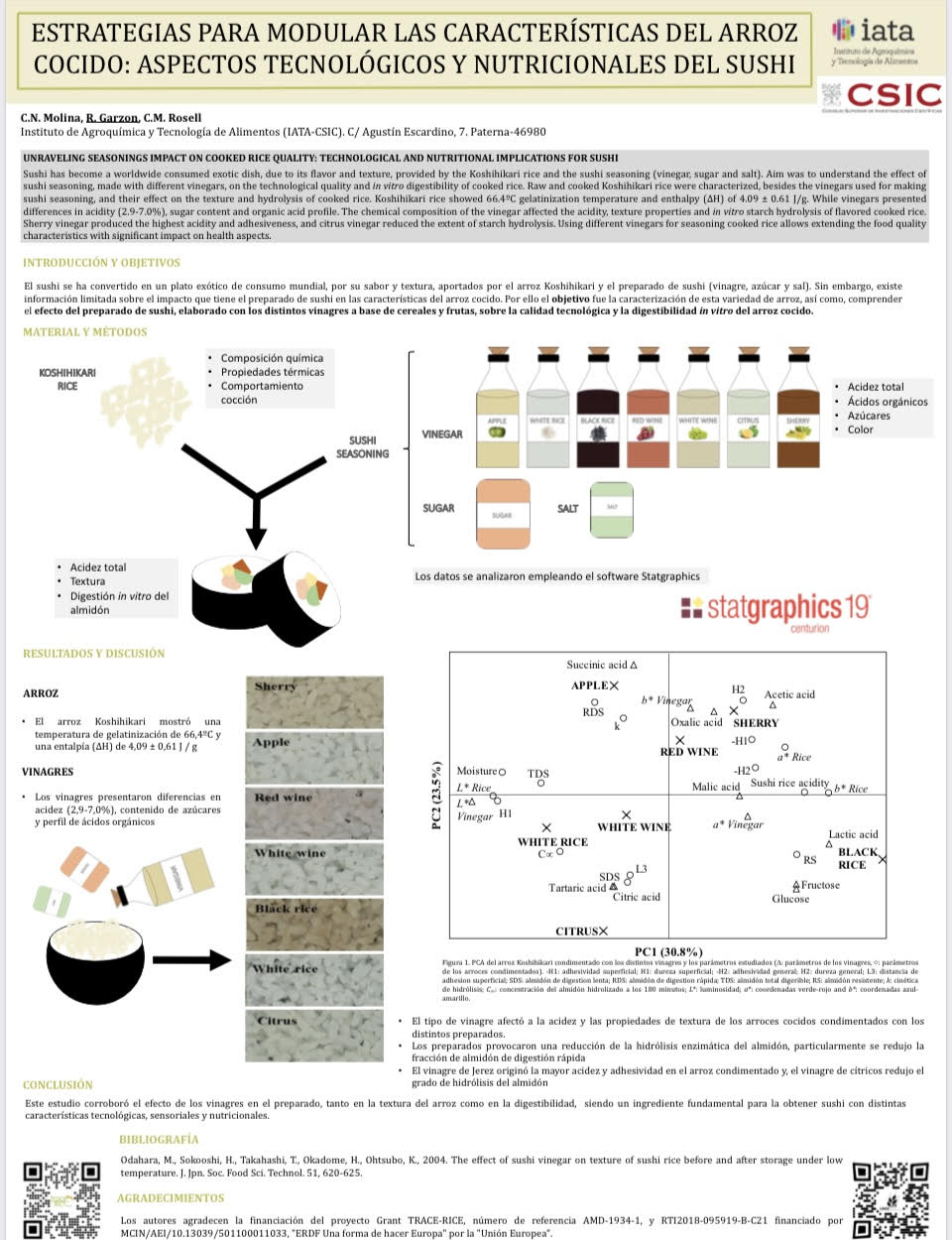Unraveling seasonings impact on cooked rice quality
One more TRACE-RICE poster presented, now at the Spanish Cereal Chemist Association Workshop, for disseminating the results.
Sushi has become a worldwide consumed exotic dish, due to its flavor and texture, provided by the Koshihikari rice and the sushi seasoning (vinegar, sugar and salt). Aim was to understand the effect of sushi seasoning, made with different vinegars, on the technological quality and in vitro digestibility of cooked rice. Raw and cooked Koshihikari rice were characterized, besides the vinegars used for making sushi seasoning, and their effect on the texture and hydrolysis of cooked rice. Koshihikari rice showed 66.4ºC gelatinization temperature and enthalpy (ΔH) of 4.09 ± 0.61 J/g. While vinegars presented differences in acidity (2.9-7.0%), sugar content and organic acid profile. The chemical composition of the vinegar affected the acidity, texture properties and in vitro starch hydrolysis of flavored cooked rice. Sherry vinegar produced the highest acidity and adhesiveness, and citrus vinegar reduced the extent of starch hydrolysis. Using different vinegars for seasoning cooked rice allows extending the food quality characteristics with significant impact on health aspects.


